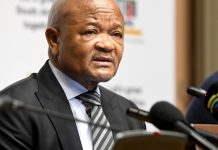Africa-Press – South-Africa. Incidents of falsified medical products have been on the rise in South Africa in the last three years and the country has launched an action plan to tackle the problem.
The South African Health Products Regulatory Authority’s (Sahpra) whistle-blower hotline has recorded an increased number of reports of falsified or substandard medical products, said Sahpra CEO Dr Boitumelo Semete-Makokotlela.
She said the whistle-blower hotline has witnessed a five-fold increase in reports of substandard or falsified medical products since 2021.
“In 2021 we had about 130 reports of substandard and falsified products, in 2022 about 297, in 2023 it was about 430… As of August, we’ve had about 507, so there’s an increase,” Semete-Makokotlela said.
She said e-commerce platforms and spaza shops were largely responsible for the availability of such products in South Africa.
Semete-Makokotlela said campaigns aimed at teaching the public about reporting these products were important.
She said some of the substandard medical products were easily detected due to obvious and visible poor quality.
“I don’t think we are doing enough [to teach the public] when they see sediments in a cough syrup, when they see the packaging not looking like what they have seen before, tablets falling apart…. so we need to make sure we communicate in a succinct manner,” she said.
She added though the problem of falsified and substandard medical products was growing, it was important for the public to know that there was a mechanism to report this.
Health minister Aaron Motsoaledi said the action plan would be a pilot backed by the World Health Organization (WHO), which would be a member state mechanism. Its success will inform rolling out the National Action Plan (NAP) handbook to UN member states.
Motsoaledi said this had been a year-long journey which would see the development of a five-year NAP on combating substandard and falsified medical products and to mark the end of the South African WHO pilot.
The minister said South Africa was one of the first countries globally to operationalise a comprehensive strategy against substandard and falsified medical products.
“The National Action Plan aims to strengthen prevention, detection and response mechanisms through a coordinated multi-sectoral action as guided by the National Action Plan draft handbook developed for this purpose by the WHO. This milestone demonstrates South Africa’s leadership and commitment to safeguarding access to quality, safe and effective medical products,” Motsoaledi said.
I don’t think we are doing enough [to teach the public] when they see sediments in a cough syrup, when they see the packaging not looking like what they have seen before, tablets falling apart … so we need to make sure we communicate in a succinct manner.
— Sahpra CEO Dr Boitumelo Semete-Makokotlela
He said the launch of the pilot was a platform to mobilise political, technical and financial support for implementation, while raising public and media awareness about the dangers posed by such products.
Motsoaledi said the WHO handbook, which the pilot was based on, highlighted the importance of political commitment, resources and sustained, coordinated action to combat the problem.
He said the success of the project would help restore or maintain trust in health systems.
“This will affirm South Africa’s leadership and political commitment to this critical public health issue.”
He said the WHO defined falsified medical products as those that deliberately or fraudulently misrepresented their identity, composition, or source and those that had not been authorised by the regulator to be on the market.
Shenaaz El-Halabi, a WHO representative in South Africa, said the problem of falsified medical products posed a serious threat to treatment outcomes.
El-Halabi said the pilot would be aligned with a global standard set by the WHO two years ago.
“This [launch] is not merely a technical issue, it’s a political and development challenge that demands attention at the highest levels of government and at the WHO,” El-Halabi said.
For More News And Analysis About South-Africa Follow Africa-Press






